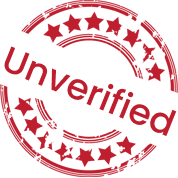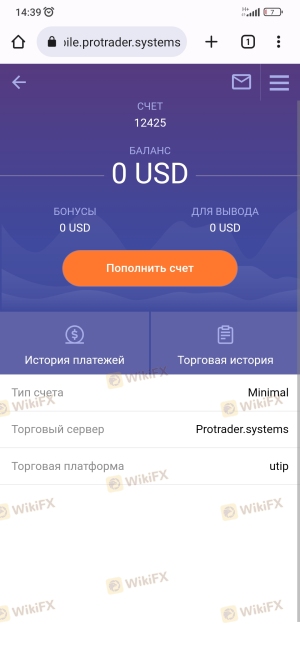Regarding the legitimacy of SCM forex brokers, it provides VFSC and WikiBit, .
Is SCM safe?

Pros
Cons
Is SCM markets regulated?
The regulatory license is the strongest proof.
VFSC Forex Trading License (EP)
Vanuatu Financial Services Commission
Vanuatu Financial Services Commission
Current Status:
UnverifiedLicense Type:
Forex Trading License (EP)
Licensed Entity:
Pure M Global Limited
Effective Date: Change Record
2024-03-25Email Address of Licensed Institution:
--Sharing Status:
No SharingWebsite of Licensed Institution:
--Expiration Time:
--Address of Licensed Institution:
--Phone Number of Licensed Institution:
--Licensed Institution Certified Documents:


Is SCM Safe or Scam?
Introduction
SCM, or Scandinavian Capital Markets, has positioned itself as a noteworthy player in the forex market since its inception in 2011. The broker claims to offer a range of trading services and products, appealing to both novice and experienced traders. However, the forex market is rife with potential pitfalls, making it essential for traders to conduct thorough evaluations of any broker they consider. This article aims to provide a comprehensive analysis of SCM, focusing on its regulatory status, company background, trading conditions, customer experience, and overall safety. Our investigation is based on a review of multiple online sources, customer feedback, and regulatory information to form a balanced view of whether SCM is safe or a scam.
Regulation and Legitimacy
Regulation is a critical factor in determining the legitimacy and safety of a forex broker. SCM claims to be registered with the Swedish Financial Supervisory Authority (SFSA), but it is essential to scrutinize the depth of this claim. The lack of a robust regulatory framework can expose traders to significant risks, including fraud and the potential loss of funds. Below is a table summarizing the core regulatory information for SCM:
| Regulatory Authority | License Number | Regulatory Region | Verification Status |
|---|---|---|---|
| Swedish Financial Supervisory Authority | Not Applicable | Sweden | Unverified |
While SCM is registered with the SFSA, it is important to note that Sweden's regulatory environment has faced scrutiny, particularly with allegations of corruption and inefficiencies within the SFSA itself. This raises concerns about the quality of oversight that SCM receives. Furthermore, the absence of a license from more reputable authorities, such as the FCA in the UK or ASIC in Australia, adds to the doubts surrounding SCM's legitimacy. Therefore, traders should approach SCM with caution, as the regulatory landscape does not provide the level of investor protection typically expected from reputable brokers.
Company Background Investigation
SCM was established in 2011 and is headquartered in Stockholm, Sweden. Originally founded as a wealth management firm, it expanded into brokerage services, offering various trading accounts and products. The ownership structure of SCM is somewhat opaque, which raises questions about transparency and accountability. The management teams backgrounds and professional experiences are not well-documented, making it challenging to assess their qualifications and expertise in the financial sector.
Transparency is crucial in building trust with clients, and SCM‘s lack of detailed information regarding its management team is a potential red flag. Additionally, the absence of clear communication regarding the company's operational practices and policies further complicates the assessment of its reliability. In a market where trust is paramount, the ambiguity surrounding SCM’s ownership and management can deter potential clients who prioritize transparency and accountability.
Trading Conditions Analysis
A broker's trading conditions, including fees and spreads, play a significant role in determining its attractiveness to traders. SCM offers various trading accounts, but the overall cost structure appears to be less competitive compared to industry standards. Below is a table comparing SCM's core trading costs with industry averages:
| Fee Type | SCM | Industry Average |
|---|---|---|
| Spread on Major Currency Pairs | 1.2 pips | 0.3 pips |
| Commission Model | $10 per lot | $4.5 per lot |
| Overnight Interest Range | Varies | Varies |
SCM‘s spreads are considerably higher than the industry average, which could significantly impact a trader’s profitability. Additionally, the commission structure, while seemingly low, does not align well with what is typically found in the market, raising questions about the overall cost-effectiveness of trading with SCM. Traders should be vigilant about any unusual fees or charges that may not be immediately apparent, as these can erode profits and create unexpected financial burdens.
Customer Funds Safety
The safety of client funds is paramount when assessing whether SCM is safe or a scam. SCM claims to implement various measures to secure client funds, including the segregation of client accounts. However, the lack of comprehensive information regarding these safety measures is concerning. The absence of investor protection schemes, such as those provided by the Financial Services Compensation Scheme (FSCS) in the UK, further complicates the evaluation of fund security.
Historical issues related to fund safety have emerged, with numerous complaints from users regarding delayed withdrawals and unresponsive customer service. These issues suggest that even if funds are technically segregated, the practical accessibility of those funds may be compromised. Traders should exercise extreme caution and consider the potential risks associated with depositing funds with SCM, as the broker's history does not inspire confidence in its ability to safeguard client assets.
Customer Experience and Complaints
Customer feedback is a vital component in assessing the reliability of any broker. An analysis of reviews and complaints about SCM reveals a pattern of dissatisfaction among users. Common complaints include delays in withdrawal processing, poor customer support, and lack of responsiveness to inquiries. Below is a summary of the main complaint types and their severity:
| Complaint Type | Severity | Company Response |
|---|---|---|
| Withdrawal Delays | High | Unresponsive |
| Poor Customer Support | Medium | Slow to respond |
| Account Suspension | High | No clear explanation |
Two notable cases illustrate these issues. One user reported being unable to withdraw funds for several weeks, leading to frustration and a loss of confidence in the broker. Another user highlighted the lack of support when attempting to resolve an issue with their account, indicating a significant gap in customer service quality. Such experiences raise concerns about SCM's commitment to customer satisfaction and may deter potential clients from engaging with the broker.
Platform and Trade Execution
The trading platform's performance is crucial for a seamless trading experience. SCM offers the popular MetaTrader 4 platform, known for its robust features and user-friendly interface. However, users have reported issues with order execution, including slippage and rejections. These problems can severely impact trading outcomes, particularly for those employing high-frequency trading strategies.
The quality of trade execution is a critical factor for traders, and any signs of manipulation or unfair practices can significantly undermine trust. While SCM markets itself as a broker that allows for automated trading, the additional costs associated with using expert advisors (EAs) may deter traders from fully utilizing the platform's capabilities.
Risk Assessment
Engaging with SCM presents several risks that potential clients should consider. Below is a risk assessment summary:
| Risk Category | Risk Level (Low/Medium/High) | Brief Explanation |
|---|---|---|
| Regulatory Risk | High | Lack of robust regulatory oversight |
| Fund Safety Risk | High | History of withdrawal issues |
| Customer Service Risk | Medium | Poor response times and support |
| Trading Costs Risk | Medium | Higher spreads may impact profitability |
To mitigate these risks, traders are advised to conduct thorough research, consider starting with a smaller investment, and be prepared for potential challenges when interacting with customer support. It's also prudent to explore alternative brokers with a stronger regulatory framework and better customer service reputations.
Conclusion and Recommendations
In conclusion, SCM presents several red flags that suggest it may not be a safe choice for forex traders. The lack of robust regulatory oversight, combined with a history of customer complaints and issues regarding fund safety, raises significant concerns about the broker's legitimacy. While SCM may offer appealing trading conditions on the surface, the potential risks associated with engaging with this broker warrant caution.
For traders seeking a reliable and safe trading environment, it is advisable to consider alternative brokers that are well-regulated and have positive customer feedback. Brokers such as Plus500, XM, and eToro are known for their strong regulatory frameworks and better customer service, making them more suitable options for traders looking for a secure trading experience. Ultimately, thorough research and careful consideration are crucial for ensuring a safe trading journey in the forex market.
Is SCM a scam, or is it legit?
The latest exposure and evaluation content of SCM brokers.

SCM Similar Brokers Safe
Whether it is a legitimate broker to see if the market is regulated; start investing in Forex App whether it is safe or a scam, check whether there is a license.
SCM latest industry rating score is 1.52, the higher the score the safer it is out of 10, the more regulatory licenses the more legitimate it is. 1.52 If the score is too low, there is a risk of being scammed, please pay attention to the choice to avoid.